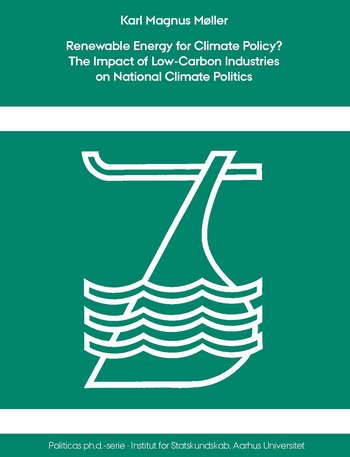Karl Magnus Møller
Renewable Energy for Climate Policy? The Impact of Low-Carbon Industries on National Climate Politics

The rise of low-carbon industries promises to transform the political economy of climate politics and provide renewed political energy for climate action. The core idea is that the expansion of domestic low-carbon industries will generate powerful coalitions of firms and citizens that benefit economically from this ‘green growth’ and support a rapid phaseout of fossil fuels. Through green industrial policy, more and more governments seek to leverage this dynamic and overcome the obstacles to stringent climate regulation indirectly by subsidising these industries. Nevertheless, these propositions remain largely untested. This dissertation asks how the rise of domestic low-carbon industries affects national climate politics and provides the most comprehensive answer to date. It proposes that structural, institutional, and informational barriers may undercut these expected effects, and it substantiates this through four empirical studies from which three central findings emerge. First, there is no evidence that the economic importance of domestic renewable energy industries is systematically associated with countries’ enactment of more stringent climate policies. Second, low-carbon business interests prioritise lobbying on narrow green industrial policies and are vastly outnumbered by high-carbon interests when they lobby on broader climate policies. Third, citizens who experience the local economic benefits of low-carbon industry expansion do not become more likely to vote for pro-climate political parties. This dissertation challenges central theoretical arguments that inform contemporary climate policymaking. In so doing, it also provides a new foundation for policymakers and scholars to scrutinise assumed causal mechanisms and reassess the scope conditions of these potentially powerful effects.
![]() Ophavsretten tilhører Politica. Materialet må ikke bruges eller distribueres i kommercielt øjemed.
Ophavsretten tilhører Politica. Materialet må ikke bruges eller distribueres i kommercielt øjemed.